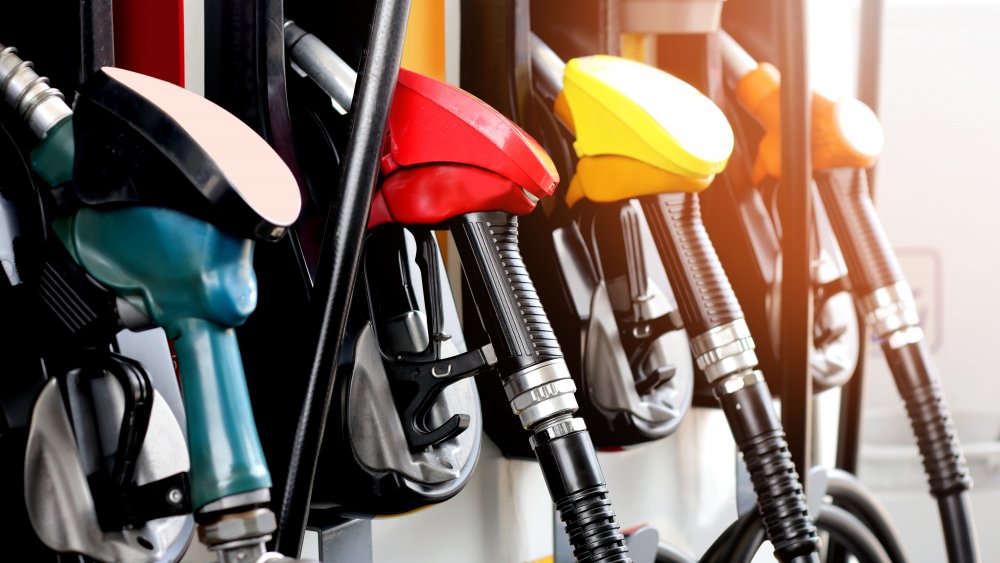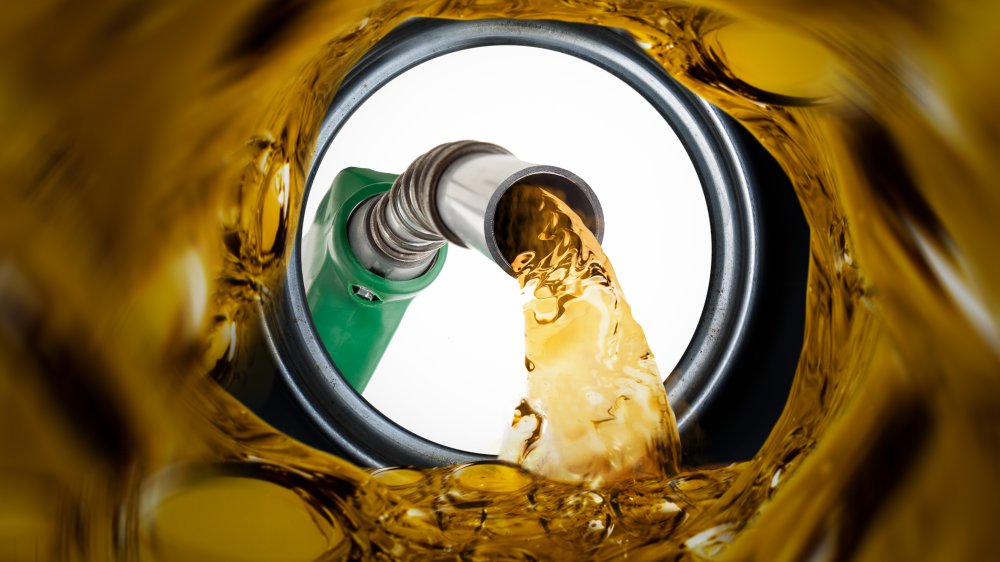The Real Reason The Gas Nozzle Keeps Shutting Off On You
It's no secret that Americans have a love affair with automobiles. Usually powered by an internal combustion engine, sometimes a gasoline-electric hybrid, unless you're Elon Musk. (And who among us is? Other than Elon Musk.) It's also no secret that for many Americans, coming of age means having their very own, personal car. It represents freedom, and not having to ask somebody for a ride, and no more taking the bus, school or otherwise. According to Full Fact, the late British Prime Minister Margaret Thatcher seemed to have agreed with the Duchess of Westminster, who said, "Anybody seen in a bus over the age of 30 has been a failure in life." All of that, including Burt Reynolds movies, flies in the face of the painful fact that once that first car is acquired, lo and behold, it needs more than just gas. Lots more. Boy howdy.
Depending on lots of factors (and gosh, there's a lot) involved with maintaining a motor vehicle in running condition, trips to the gas pump are inevitable. Pay, remove gas cap, insert nozzle (unless you live in Oregon or New Jersey, where you have to let the professional pump it for you, according to Forbes), squeeze the lever, and after a few seconds there's a chunk sound as the pump shuts off. Even though there's absolutely no way your car's tank is full.
Mr. Pump is just trying to protect you from yourself
You're having an up-close and personal experience of American ingenuity at its finest. Nobody wants gasoline splashing all over them, and how would you know that your tank is actually about to top off to overflowing? Good news is, according to Jalopnik, that there's nothing wrong with your car itself. (Well, nothing having to do with gas pumps, anyway.) It has to do with a "shut-off sensor port" on the nozzle, as Mental Floss explains. There's a hole, and a pipe, and when air is cut off to that part of the nozzle, it triggers a shut-off. When the gas starts to overcome the tip of the nozzle — when the car's tank is full, for instance — the pump is signalled to shut off. No spillage, all over you or anything else.
Anybody who doesn't live in Oregon or New Jersey and who has pumped their own gas knows that sometimes the pump stops anyway. Again, no cause for alarm. The Globe and Mail gives us this analogy: Think of trying to pour wine back into a bottle. If you pour too quickly for the bottle's narrow neck, the wine will spill over. So it is with the gas pump: if you allow it to pump too quickly it's going to trigger the pump shut-off. (Again, no spillage of a finite supply of fossil fuel.)
And honestly, who cares what Margaret Thatcher thinks? Mass transit is for everyone.

